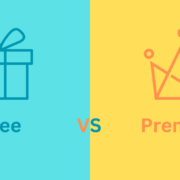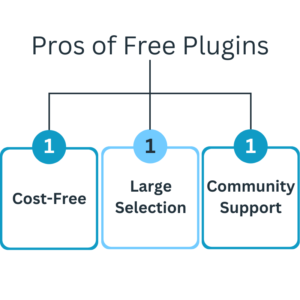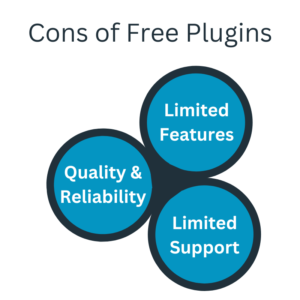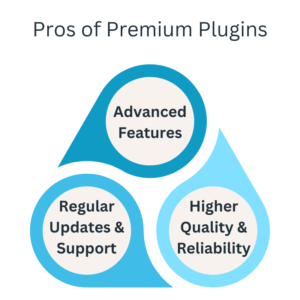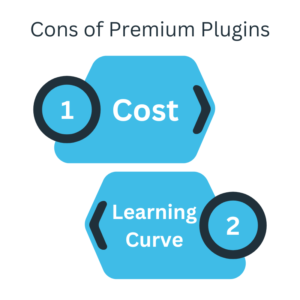Monetizing Your Plugins: Strategies for Generating Revenue
WordPress plugins provide helpful functionality and customization options and can also generate revenue for plugin developers. Monetizing plugins can support ongoing development efforts, provide a return on investment, and incentivize the creation of high-quality plugins. This blog post will explore various strategies for generating revenue from your WordPress plugins.
Offer Premium Versions:
One common strategy is offering both a free and a premium version of your plugin. The free version is a teaser to attract users. In contrast, the premium version offers advanced features, enhanced support, or additional functionalities at a cost. Providing value-added features or services in the premium version can entice users to upgrade and generate revenue.

Implement a Freemium Model:
Like offering premium versions, a freemium model involves providing a basic version of your plugin for free and offering premium add-ons or extensions for advanced features or specialized functionalities. Users can purchase these add-ons to enhance the capabilities of the free plugin, generating revenue from the additional features.
Create Add-on Products:
Develop complementary products like themes or templates that work seamlessly with your plugin for WordPress website. These add-on products can be sold separately or bundled with your plugin, providing users with a comprehensive solution and generating additional revenue streams.
Offer Subscriptions:
Consider offering subscription-based pricing models for your plugins. Users pay a recurring fee to access ongoing updates, new features, priority support, or exclusive content. Subscriptions provide a predictable revenue stream and encourage long-term customer relationships.
Provide Customization Services:
Leverage your expertise and offer customization services for your plugin. Users who require specific customizations or tailored solutions can engage your services for personalized support and development. Customization services can be offered as one-time projects or ongoing support contracts.

Develop Enterprise Solutions:
Target larger organizations or enterprises by developing enterprise-level solutions tailored to their needs. Enterprise solutions often require extensive customization, integrations, and support. Offering specialized enterprise versions of your plugin can generate substantial revenue from these high-value customers.
Implement Affiliate Programs:
Create an affiliate program where users or influencers can promote your plugin and earn a commission for each successful referral or sale. Affiliate programs leverage the reach and influence of others to drive sales and expand your customer base.
Create Training or Educational Resources:
Develop training materials, tutorials, or courses that help users maximize the potential of your plugin. Offer these resources as premium content, providing users with valuable knowledge and generating revenue from those seeking in-depth guidance.
Provide Premium Support:
Offer premium support services to users who require dedicated assistance or priority access to support channels. Premium support can be offered as a separate service or bundled with premium versions of your plugin. Providing responsive and high-quality support can be a crucial selling point for users.

Explore Sponsorships or Partnerships:
Collaborate with other businesses or sponsors to monetize your plugin. This can include sponsorships for your plugin’s development or partnerships with relevant companies that can benefit from integration with your plugin. Sponsorships and partnerships can provide financial support and open doors to new revenue streams.
Monetizing your WordPress plugins allows you to generate revenue while providing value to users. By offering premium versions, implementing a freemium model, creating add-on products, providing subscriptions, offering customization services, developing enterprise solutions, implementing affiliate programs, providing premium support, creating training resources, and exploring sponsorships or partnerships, you can successfully monetize your plugins and support ongoing development efforts while delivering valuable solutions to your users.


